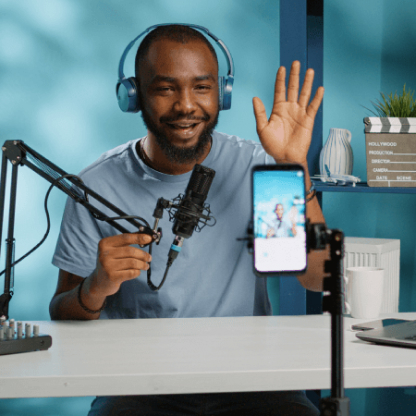The initial screening interview is your first line of defense against bad hires and your best opportunity to identify hidden gems. In a competitive talent market, simply matching resumes to job descriptions is not enough. The real challenge lies in quickly and effectively gauging a candidate's motivation, cultural alignment, and logistical fit. Asking the right interview screening questions can transform this process from a routine checklist into a strategic advantage, saving countless hours and resources down the line.
This guide provides a curated list of eight powerful questions designed to cut through rehearsed answers and reveal the genuine potential of each applicant. We will explore not just what to ask, but why it matters, what to listen for, and how to interpret the responses to build a stronger, more qualified candidate pipeline. By mastering these questions, you can ensure that every candidate who moves forward is not only qualified on paper but truly aligned with your company's needs and goals. This approach helps you move beyond basic qualifications and start assessing the practicalities that determine a successful hire.
1. Tell me about yourself
This classic opening question is far more than a simple icebreaker. It's a foundational screening tool that sets the stage for the entire interview. By asking an open-ended question like "Tell me about yourself," you hand control to the candidate, allowing you to observe their communication style, self-awareness, and ability to structure a narrative. It's one of the most effective initial interview screening questions to gauge a candidate's professionalism and preparation from the very beginning.

The answer reveals what the candidate deems most important about their professional journey. A strong response connects past experiences to the present opportunity, showing a clear understanding of the role's requirements.
Why It's a Powerful Screening Question
This question quickly separates prepared candidates from unprepared ones. It provides a high-level overview that you can use to guide your subsequent, more specific questions.
- For Consulting Firms (e.g., McKinsey): The answer is a test of structured thinking. A great candidate will present a logical, concise story (often called the "present-past-future" model) that demonstrates clarity and executive presence.
- For Tech Companies (e.g., Google): Recruiters listen for passion, innovation, and alignment with company values. Does the candidate's story highlight projects that show a desire to build, create, or solve complex problems?
- For Startups: This is a chance to spot an entrepreneurial mindset. The ideal response will emphasize adaptability, a willingness to wear multiple hats, and a history of thriving in fast-paced or ambiguous environments.
Implementation Tips
To get the most value from this question, guide the candidate and listen actively.
Pro Tip: Explicitly set a time expectation. Saying, "In two or three minutes, could you walk me through your background?" helps candidates provide a focused response and prevents rambling. This is especially useful in pre-recorded screenings where a candidate's ability to be concise is critical. You can get more insights on how to prepare for this format by reading about how to ace your on-demand video interview.
Listen for how well their story aligns with the job description. A candidate who immediately connects their top skills to your key requirements demonstrates strong interest and analytical ability. Note any interesting projects or achievements they mention; these are perfect for follow-up questions.
2. Why are you interested in this role/company?
This question moves beyond a candidate's skills and delves into their motivation and intent. It's designed to filter out applicants who are mass-applying from those who have a genuine, specific interest in your organization and the position. As one of the most insightful interview screening questions, it reveals the depth of a candidate's research and their personal connection to your company's mission, products, or culture.

A well-researched, thoughtful answer indicates that the candidate is not just looking for any job, but this job. It shows they've invested time to understand what makes your company unique and how their contributions could align with your goals, making them a more engaged and potentially long-term hire.
Why It's a Powerful Screening Question
This question is a direct test of a candidate’s preparation and enthusiasm. The quality of the answer quickly signals whether they are a passive job seeker or a proactive, interested applicant.
- For Mission-Driven Companies (e.g., Non-profits, Tesla): This is a critical culture-fit question. A great candidate for Tesla might discuss their passion for sustainable energy, while an applicant for a non-profit should articulate a personal connection to the organization's cause.
- For Large Enterprises (e.g., Amazon): Recruiters look for alignment with established frameworks, like Amazon's Leadership Principles. A strong answer will connect the role's responsibilities to principles like "Customer Obsession" or "Invent and Simplify."
- For Highly Competitive Industries: This helps you understand a candidate's strategic thinking. Why did they choose your company over a direct competitor? Their answer can reveal insights into how they perceive your brand and market position.
Implementation Tips
Listen for specificity and authenticity to separate generic answers from truly compelling ones.
Pro Tip: Ask targeted follow-ups to verify their research. Questions like, "What have you read about us recently that you found interesting?" or "Which of our company values resonates with you most, and why?" can push candidates beyond surface-level flattery and reveal the true extent of their homework.
Pay close attention to their level of enthusiasm. A candidate who can articulate not just what the company does, but how the role's specific duties excite them, is showing a much deeper level of engagement. Their answer should feel less like a memorized script and more like a genuine expression of professional interest.
3. What are your salary expectations?
This direct question is a crucial logistical checkpoint in the hiring process. Addressing compensation early ensures that both the candidate's expectations and your organization's budget are aligned, preventing wasted time and effort for everyone involved. It serves as one of the most practical interview screening questions because it immediately clarifies financial feasibility, while also offering a glimpse into the candidate’s market awareness and professional value assessment.

A candidate’s answer can reveal how much research they've done on the role, the industry, and your company. It sets the stage for a transparent conversation about total compensation, which is far more than just a base salary.
Why It's a Powerful Screening Question
This question quickly filters candidates who are financially out of range, allowing you to focus on a viable talent pool. It also opens a dialogue about what the candidate values, be it base pay, equity, or benefits.
- For Tech Companies: With fierce competition for talent, this question helps manage expectations early. Recruiters often need to know if a candidate's expectations are within a pre-approved band before investing significant engineering time in technical interviews.
- For Startups: The answer can reveal a candidate's risk tolerance and priorities. A candidate asking for a lower base salary in exchange for higher equity might be a better cultural fit for a high-growth, early-stage environment.
- For Government Roles: This question is used to set clear expectations. Since pay scales are often rigid and non-negotiable, it's a way to explain the fixed compensation structure and confirm the candidate is still interested in proceeding.
Implementation Tips
Navigating the salary conversation requires transparency and an understanding of legal constraints.
Pro Tip: Always be aware of salary history ban laws in your jurisdiction. Instead of asking what they currently make, focus on their future expectations. Frame the question by providing your budgeted range first: "The budgeted range for this role is between $X and $Y. Does that align with your expectations?"
This approach fosters trust and positions the conversation as a collaborative effort rather than a confrontation. Be prepared to discuss the full compensation package, including bonuses, benefits, and professional development opportunities. You can find more details on how to structure this conversation effectively in our guide to phone screening questions for recruiters.
4. What is your availability and notice period?
This seemingly simple logistical question is a critical screening tool for managing hiring timelines and assessing a candidate's professionalism. It directly addresses the practicalities of transitioning an employee into your organization, revealing how their departure from a current role aligns with your own urgency. This is one of the most practical interview screening questions because it uncovers potential scheduling conflicts early, preventing wasted time and resources down the line.

The answer provides a clear timeline for onboarding and helps you manage expectations internally. A candidate's respect for their notice period is often a strong indicator of their integrity and professional conduct.
Why It's a Powerful Screening Question
This question helps filter candidates based on timeline feasibility, ensuring alignment between your business needs and their departure logistics. It’s a pragmatic way to plan your recruitment pipeline effectively.
- For Consulting Firms: Project start dates are often rigid. Knowing a candidate's notice period is essential for staffing them on upcoming client engagements without delay.
- For Seasonal Businesses: Hiring for a peak season (e.g., retail holiday rush, summer tourism) requires staff to be available by a specific, non-negotiable date. This question immediately identifies who can meet that requirement.
- For Roles Requiring Urgent Backfill: If you're replacing a key employee who has already left, a candidate with immediate availability or a short notice period becomes significantly more attractive.
Implementation Tips
Frame the question to gather all necessary details while signaling your own company's flexibility where possible.
Pro Tip: Go beyond the notice period itself. Ask, "Beyond your standard notice period, do you have any pre-planned vacations or commitments in the next three months that we should be aware of?" This foresight prevents surprise delays after an offer has been accepted.
Be transparent about your ideal start date but also inquire about their flexibility. A top-tier candidate who requires a longer notice period might be worth the wait. Respecting a standard two-week or one-month notice period is a sign of a candidate's professionalism and loyalty to their current employer, which are positive traits.
5. Do you have experience with [specific skill/technology/requirement]?
This direct, technical question is one of the most efficient interview screening questions for verifying non-negotiable hard skills. It moves beyond a resume's bullet points to gauge a candidate's hands-on experience with the specific tools, software, or methodologies crucial for the role. Its purpose is to quickly confirm a baseline competency before investing more time in deeper evaluation.
The answer to this question immediately separates candidates with theoretical knowledge from those with practical, applied experience. A strong response will not only confirm familiarity but also provide context regarding the scale, recency, and complexity of their usage, offering a clear picture of their true capabilities.
Why It's a Powerful Screening Question
This question is a fast, reliable filter for technical or specialized roles. It cuts through jargon and forces candidates to substantiate their on-paper qualifications, saving significant time for hiring managers and technical leads.
- For Software Companies (e.g., Microsoft): Instead of just asking if they know a language like Python, you can ask about specific frameworks (e.g., Django, Flask) or libraries (e.g., Pandas, TensorFlow). This reveals their depth of expertise in the exact tech stack you use.
- For Marketing Agencies: A query about a platform like "HubSpot" or "Salesforce Marketing Cloud" isn't just a yes/no question. It’s an opening to discuss specific campaigns they've managed, workflows they've automated, or reporting dashboards they've built.
- For Finance Departments: Asking about experience with "SAP" or "Oracle Financials" allows you to probe into the specific modules they've used, the size of the budgets they've managed within the system, and their role in financial closing processes.
Implementation Tips
To make this question more than a simple checklist item, focus on uncovering the "how" and "when" behind their experience.
Pro Tip: Always ask for a specific example immediately after they confirm their experience. A great follow-up is, "Can you tell me about a project where you used [the skill] to solve a significant business problem?" This pushes them to demonstrate their problem-solving ability and the real-world impact of their skills.
Probe for details about the context of their experience. Ask about the scale of the projects, the complexity of the tasks they performed, and, crucially, how recently they used the technology. This helps you assess if their skills are current and relevant to your needs. Also, gauge their willingness to learn adjacent or newer technologies, as this indicates adaptability.
6. Are you legally authorized to work in [country/region]?
While not as revealing of a candidate's skills, this compliance-focused question is one of the most critical interview screening questions a recruiter can ask. It is a straightforward, yes-or-no query designed to verify a candidate's legal eligibility to work in the country where the job is located. Getting this wrong can lead to significant legal penalties, hiring delays, and wasted resources.
This question serves as a non-negotiable gatekeeper in the hiring process. It ensures that you only invest time and effort in candidates who can legally be employed, protecting the company from compliance risks and ensuring a smooth onboarding process.
Why It's a Powerful Screening Question
This question quickly filters out candidates who do not meet the fundamental legal requirements for employment, saving everyone time. Its power lies in its simplicity and directness in addressing a critical logistical and legal hurdle early on.
- For Multinational Corporations: With operations across different countries, verifying work authorization is a standard, non-negotiable first step. It ensures global mobility and hiring practices remain compliant with diverse and complex international labor laws.
- For Companies Sponsoring Visas: The answer to this question (and a potential follow-up about needing sponsorship) helps identify which candidates will require immigration support. This allows HR to budget for legal fees and manage timelines accordingly.
- For Small Businesses: Lacking large legal departments, SMBs must be particularly careful. Answering this question upfront prevents them from unknowingly hiring an unauthorized worker, which could result in severe financial penalties and legal trouble.
Implementation Tips
Navigating this topic requires precision and a focus on compliance to avoid any hint of discrimination.
Pro Tip: Frame the question consistently and neutrally for every single candidate, regardless of their perceived background or accent. For example, always ask, "Are you legally authorized to work in the United States?" Do not ask about citizenship, national origin, or specific visa types, as these questions can lead to discrimination claims.
Focus solely on the authorization to work. If a candidate says they will require sponsorship in the future, you can then explore your company's policies on that matter. The initial goal is simply to confirm their current legal status to work for your organization.
7. Are you willing to travel/relocate for this position?
This is a direct, logistical question that functions as a critical filter for specific roles. It moves beyond skills and experience to address the practical, real-world requirements that determine a candidate's long-term viability. Asking about travel or relocation upfront respects everyone's time, ensuring that lifestyle and job demands are aligned from the very start. It is one of the most important interview screening questions for roles with geographical demands.
The answer immediately clarifies if a candidate can meet fundamental operational needs. A straightforward "yes" or "no" can prevent a mismatch that would otherwise emerge much later in the hiring process, saving significant resources.
Why It's a Powerful Screening Question
This question provides an unambiguous go/no-go signal for certain positions. It screens for lifestyle compatibility, which is just as crucial as technical skill for retention and job satisfaction in roles that demand geographical flexibility.
- For Consulting Firms (e.g., Bain & Company): Since roles often require up to 80% travel, this is a non-negotiable qualifier. A candidate's enthusiastic confirmation shows they understand and accept the demanding nature of the consulting lifestyle.
- For Sales Positions: A regional sales manager role is impossible without the ability to cover a territory. This question confirms the candidate is prepared for frequent car or air travel and nights away from home.
- For International Companies: When a role is based overseas or requires relocation for a multi-year assignment, this question gauges a candidate's genuine interest and capacity for a significant life change.
Implementation Tips
Clarity and transparency are key to using this question effectively. Vague requirements lead to misunderstandings and potential hiring mistakes.
Pro Tip: Be specific and transparent about the requirements. Instead of asking a generic question, frame it with details: "This role involves traveling to client sites across the Midwest, typically three weeks per month. Does that align with your expectations?" This provides context and allows the candidate to give a truly informed answer.
Set expectations by discussing your company's travel policies, per diems, and expense reimbursement processes. Understanding the support structure can make a significant difference in a candidate's willingness to commit. Be prepared to discuss any potential flexibility, such as a four-day travel week or options for remote work on non-travel days.
8. Why are you leaving your current position?
This direct question cuts straight to a candidate's motivations and professionalism. It is one of the most revealing interview screening questions because it uncovers the "push" factors driving a candidate away from their current role and the "pull" factors attracting them to a new one. The answer offers a window into their attitude, career goals, and how they handle professional relationships and challenges.
How a candidate frames their departure is a critical indicator of their maturity and self-awareness. A thoughtful response focuses on future growth and opportunity, while a poor one often devolves into negativity or blame, raising immediate red flags about their potential fit and conduct.
Why It's a Powerful Screening Question
This question helps you assess a candidate's professional demeanor and identify potential risks. It distinguishes between candidates who take ownership of their career path and those who may be difficult to manage or prone to conflict.
- For Corporate Roles (e.g., Finance, Operations): The answer can signal stability and ambition. A desirable response highlights a logical desire for more responsibility, a new challenge, or a better alignment with long-term career goals that their current company cannot offer.
- For Sales and Account Management: Recruiters listen for reasons related to uncapped earning potential, a superior product, or a better territory. A response focused on seeking a more supportive or high-performance sales culture is a positive sign.
- For Healthcare or Education: This question often reveals a desire for a different type of environment or patient/student population. A candidate moving for a role with better resources, a different care philosophy, or opportunities for specialization shows thoughtful career planning.
Implementation Tips
To get an honest and insightful answer, frame the question neutrally and listen for the subtext.
Pro Tip: Pay close attention to the tone and language used. A candidate who speaks respectfully about their former employer, even while explaining their reasons for leaving, demonstrates professionalism. Conversely, one who complains excessively about management, colleagues, or company policy may bring that negativity into your workplace. This respect for process is a key part of maintaining a positive candidate experience, which you can learn more about improving here.
Probe for specifics if the answer is vague. A follow-up like, "You mentioned wanting more growth opportunities. Can you give me an example of what that looks like for you?" can provide much deeper insight. Always cross-reference their answer with their resume timeline and reasons for leaving previous roles to check for consistency.
Key Interview Screening Questions Comparison
| Question | Implementation Complexity 🔄 | Resource Requirements ⚡ | Expected Outcomes 📊 | Ideal Use Cases 💡 | Key Advantages ⭐ |
|---|---|---|---|---|---|
| Tell me about yourself | Low | Low | Communication skills & self-awareness | Icebreaker, cultural fit, storytelling assessment | Easy conversation starter, insight into priorities |
| Why are you interested in this role/company? | Medium | Low | Motivation, company knowledge | Assessing candidate enthusiasm and alignment | Identifies genuine interest and company fit |
| What are your salary expectations? | Low | Low | Budget alignment, negotiation approach | Early screening for compensation fit | Saves time, provides market salary info |
| What is your availability and notice period? | Low | Low | Timeline alignment, professionalism | Planning start dates and onboarding | Essential for scheduling and respecting notice |
| Do you have experience with [skill]? | Medium | Medium | Technical competence, skill depth | Validating hard skills for specific roles | Quickly eliminates unqualified candidates |
| Are you legally authorized to work? | Low | Low | Legal compliance, visa sponsorship need | Ensuring lawful employment in region | Prevents compliance violations |
| Are you willing to travel/relocate? | Medium | Low | Lifestyle/job requirement alignment | Roles with travel or relocation demands | Prevents future retention issues |
| Why are you leaving your current position? | Medium | Medium | Motivation, professionalism, red flags | Behavioral insight, evaluating career drivers | Reveals attitude, decision-making, potential issues |
Streamlining Your Screening Process for Faster, Smarter Hires
Mastering the art of the initial screen is no longer just a preliminary step; it's a strategic advantage in a competitive talent market. The eight foundational interview screening questions we've explored serve as the essential toolkit for any recruiter or hiring manager aiming to build a more efficient, effective, and fair hiring process. By moving beyond surface-level inquiries, you can quickly qualify candidates, align expectations, and ensure you’re investing valuable time only in those who are a genuine fit.
The true power of these questions is unlocked through consistent and strategic application. Each question, from "Tell me about yourself" to "Why are you leaving your current position?", is a diagnostic tool. It’s designed not just to gather information but to reveal crucial insights into a candidate's motivation, self-awareness, professional alignment, and logistical viability. Consistently asking these questions of every applicant creates a standardized baseline, allowing for more objective comparisons and reducing the influence of unconscious bias.
Key Takeaways for Immediate Implementation
To transform your screening from a simple checklist into a powerful filtering mechanism, focus on these core principles:
- Standardize Your Approach: Ensure every candidate for a specific role receives the same set of core screening questions. This creates a level playing field and provides consistent data points for comparison, making your initial decisions more defensible and data-driven.
- Listen for the "Why": Don't just accept the answers at face value. Pay close attention to the underlying motivations behind a candidate's responses, especially regarding their interest in the role and reasons for leaving their previous job. This is where you uncover true intent and cultural fit.
- Balance Qualification with Candidate Experience: While the goal is to filter effectively, the screening call is often a candidate's first personal interaction with your company. Maintain a professional, respectful, and engaging tone to ensure that even unsuccessful applicants leave with a positive impression of your brand.
From Manual Screening to Modern Efficiency
While traditional phone screens have their place, they can quickly become a bottleneck, bogged down by scheduling conflicts and manual note-taking. To truly accelerate your hiring and leverage these interview screening questions at scale, modern technology is indispensable. Asynchronous video interviews, for example, allow you to pose these exact questions and let candidates respond on their own schedule. This not only standardizes the process but dramatically expands your capacity to review top talent.
To significantly enhance efficiency and effectiveness, understanding the criteria for evaluating the best video interview platforms for recruitment success is crucial for faster, smarter hires. By combining a strategic questioning framework with the right technology, you create a hiring engine that is not just faster, but also smarter and more equitable, setting the stage to attract and secure the best talent in your industry.
Ready to replace time-consuming phone screens with a streamlined, modern solution? See how Async Interview can help you implement these screening questions at scale, allowing you to review more candidates in less time and make data-driven hiring decisions. Try Async Interview today and build a faster, fairer hiring process.





